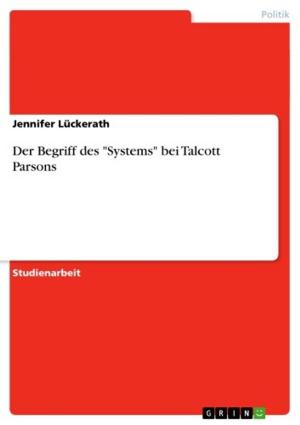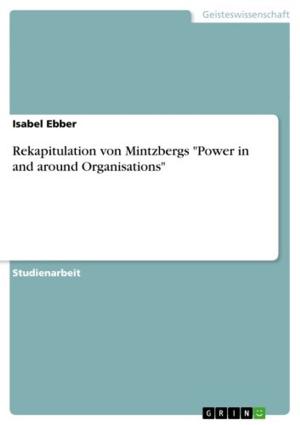Information, Communication and Technologies (ICT) and its Implication for Education Management Information Systems (EMIS) in Tanzania
Nonfiction, Reference & Language, Education & Teaching, Administration| Author: | Yazidu Saidi Mbalamula | ISBN: | 9783656635444 |
| Publisher: | GRIN Verlag | Publication: | April 11, 2014 |
| Imprint: | GRIN Verlag | Language: | English |
| Author: | Yazidu Saidi Mbalamula |
| ISBN: | 9783656635444 |
| Publisher: | GRIN Verlag |
| Publication: | April 11, 2014 |
| Imprint: | GRIN Verlag |
| Language: | English |
Essay from the year 2014 in the subject Pedagogy - School System, Educational and School Politics, grade: 7.5, University of Dodoma (College of Education), course: Educational Management and Administration, language: English, abstract: Education Management Information System (EMIS) is essential to empower planning process to translate educational policy into actions. The application of Information, Communication and Technology (ICT) in Educational settings is equally important for developing economies such as that of Tanzania to pursue two mutually reinforcing stimulation of socioeconomic and global agenda of economy prosperity goals. There is close link between ICT and EMIS, and the efficiency and effectiveness of latter is considerably affected by the former. It is in this contention that as per analysis made in this paper which reveals that ICT is still suffering from serious shortcomings, which unless solved, EMIS will continue to be ineffective and inefficient strategy. Three major problems identified in the paper include the (i) lack of infrastructure and systems in place to facilitate effective monitoring as a result utilization of ICTs in Tanzanian education institutions are dismal due to low connectivity and teledensity (ii) insufficient numbers of qualified technical personnel to manage and maintain ICT resources, (iii) inadequate training and capacity development resulting in underutilization of ICT facilities. This paper provides a basic and general review of how ICT influences and hampers EMIS effectiveness and efficiency. Also recommendations are provided at the end on how to improvise EMIS in order to maintain quality information in various educational processes.
Mr. Mbalamula currently holds Master of Arts in Education from Northeast Normal University (China)-2013. He also holds Bachelor of Education in Science (Biology) from the University of Dar es Salaam (2007). Recently he works at capacity of Assistant Lecturer in the Department of Educational Management and Policy Studies at the College of Education in the University of Dodoma. Areas of interest include Educational Partnerships, Project Management, Educational policy, Education Information Systems, and Politics of Education.
Essay from the year 2014 in the subject Pedagogy - School System, Educational and School Politics, grade: 7.5, University of Dodoma (College of Education), course: Educational Management and Administration, language: English, abstract: Education Management Information System (EMIS) is essential to empower planning process to translate educational policy into actions. The application of Information, Communication and Technology (ICT) in Educational settings is equally important for developing economies such as that of Tanzania to pursue two mutually reinforcing stimulation of socioeconomic and global agenda of economy prosperity goals. There is close link between ICT and EMIS, and the efficiency and effectiveness of latter is considerably affected by the former. It is in this contention that as per analysis made in this paper which reveals that ICT is still suffering from serious shortcomings, which unless solved, EMIS will continue to be ineffective and inefficient strategy. Three major problems identified in the paper include the (i) lack of infrastructure and systems in place to facilitate effective monitoring as a result utilization of ICTs in Tanzanian education institutions are dismal due to low connectivity and teledensity (ii) insufficient numbers of qualified technical personnel to manage and maintain ICT resources, (iii) inadequate training and capacity development resulting in underutilization of ICT facilities. This paper provides a basic and general review of how ICT influences and hampers EMIS effectiveness and efficiency. Also recommendations are provided at the end on how to improvise EMIS in order to maintain quality information in various educational processes.
Mr. Mbalamula currently holds Master of Arts in Education from Northeast Normal University (China)-2013. He also holds Bachelor of Education in Science (Biology) from the University of Dar es Salaam (2007). Recently he works at capacity of Assistant Lecturer in the Department of Educational Management and Policy Studies at the College of Education in the University of Dodoma. Areas of interest include Educational Partnerships, Project Management, Educational policy, Education Information Systems, and Politics of Education.















